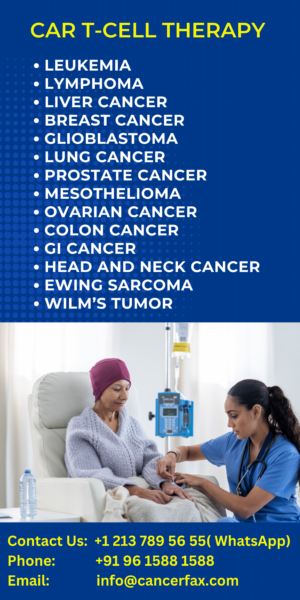Alymsys (Bevacizumab)
Overview: Within the field of cancer, the pursuit of efficacious treatments has been unwavering. Cancer, characterized by its diverse manifestations and persistent advancement, has historically presented a significant obstacle to the field of medical study. Nevertheless, inside this intricate terrain, a glimmer of optimism emerges in the form of Bevacizumab, an innovative pharmaceutical that has fundamentally transformed the field of cancer therapy. This article thoroughly examines Bevacizumab, investigating its mechanism of action, therapeutic uses, effectiveness, and possible adverse effects.
Comprehending Bevacizumab, commercially known as Avastin, is classified as a monoclonal antibody medication. Bevacizumab, a pharmaceutical compound created by Genentech, a subsidiary of Roche, received its initial approval from the U.S. Food and Drug Administration (FDA) in 2004 for the purpose of treating metastatic colorectal cancer. Over time, the indications of this treatment have broadened to include a range of malignancies, such as lung, kidney, ovarian, cervical, and brain tumors.
The efficacy of bevacizumab is primarily attributed to its distinctive method of action. The monoclonal antibody in question specifically binds to vascular endothelial growth factor (VEGF), a pivotal protein implicated in the phenomenon of angiogenesis, which refers to the formation of new blood vessels to provide nourishment to tumors. Bevacizumab exerts its inhibitory effect on the interaction between VEGF and receptors on endothelial cells by exhibiting a strong binding affinity. Consequently, it disrupts the signaling cascade responsible for facilitating the process of blood vessel creation. As a result, the process of tumor angiogenesis is inhibited, leading to a deprivation of vital nutrients and oxygen to the malignant tissue, hence hindering its growth and metastasis.
Therapeutic Applications: Bevacizumab exhibits a wide range of applications in the treatment of many types of malignancies, establishing itself as a fundamental component in the therapeutic repertoire of oncologists on a global scale. The utilization of Bevacizumab in conjunction with chemotherapy has exhibited notable effectiveness in the treatment of metastatic colorectal cancer, resulting in an extension of both progression-free survival and overall survival rates. Moreover, Bevacizumab is employed in the management of non-small cell lung cancer, specifically in instances when the tumor exhibits excessive expression of VEGF, making it vulnerable to anti-angiogenic therapy.
In addition to its application in solid tumors, Bevacizumab has demonstrated potential in the treatment of hematologic malignancies. The combination of Bevacizumab with standard chemotherapy regimens has demonstrated significant response rates in patients with relapsed or refractory multiple myeloma, highlighting its promise in the treatment of hematologic malignancies.
In addition, bevacizumab has been recognized as a valuable supplementary treatment in the treatment of aggressive brain cancers, including glioblastoma multiforme. Bevacizumab demonstrates anti-edema benefits by specifically targeting the abnormal neovascularization observed in these tumors. As a result, it effectively alleviates symptoms and enhances the overall quality of life for patients affected by these conditions.
The effectiveness of Bevacizumab in treating different types of cancer is substantiated by a substantial body of clinical data obtained from randomized controlled trials and real-world observations. In the context of colorectal cancer, the incorporation of Bevacizumab into conventional chemotherapy protocols has demonstrated notable advantages in terms of survival. Several studies have reported a two-fold increase in median overall survival when compared to chemotherapy administered as a standalone treatment.
Similarly, Bevacizumab-containing therapy plans have shown enhancements in progression-free survival and objective response rates in non-small-cell lung cancer. As a result, it has been included in treatment guidelines for specific patient groups.
Furthermore, the effectiveness of Bevacizumab extends beyond its use as a first treatment, reaching the domain of maintenance therapy in specific types of cancer. In the context of ovarian cancer, the utilization of Bevacizumab as a maintenance therapy subsequent to initial cytoreductive surgery and chemotherapy has demonstrated the ability to extend the duration of progression-free survival. This approach holds significant potential for the effective management of the illness.
The safety profile and adverse reactions of Bevacizumab are noteworthy, as it exhibits significant therapeutic potential but is not without its drawbacks. Hypertension, proteinuria, gastrointestinal perforation, hemorrhage, thromboembolic events, and decreased wound healing are among the most frequently observed adverse effects linked to Bevacizumab medication. Furthermore, people with a propensity for cardiovascular disease are at increased risk of experiencing arterial thromboembolic events.
Moreover, the administration of Bevacizumab to specific groups of patients, such as those with pre-existing hypertension or recent surgery, requires careful surveillance and personalized evaluation of risks to minimize possible consequences.
Conclusion: Bevacizumab exemplifies the profound impact of targeted medicines in the field of oncology. This monoclonal antibody has revolutionized precision medicine by inhibiting tumor angiogenesis, providing a renewed sense of optimism for patients fighting many types of malignancies. Although the effectiveness of Bevacizumab is indisputable, prudent utilization of this medication necessitates a thorough comprehension of its mechanism of action, therapeutic uses, and possible negative consequences. As the investigation into the intricacies of cancer biology progresses, Bevacizumab emerges as a promising solution, shedding light on the trajectory towards enhanced outcomes and improved quality of life for those affected by cancer on a global scale.
- Comments Closed
- March 22nd, 2024









Privacy Overview